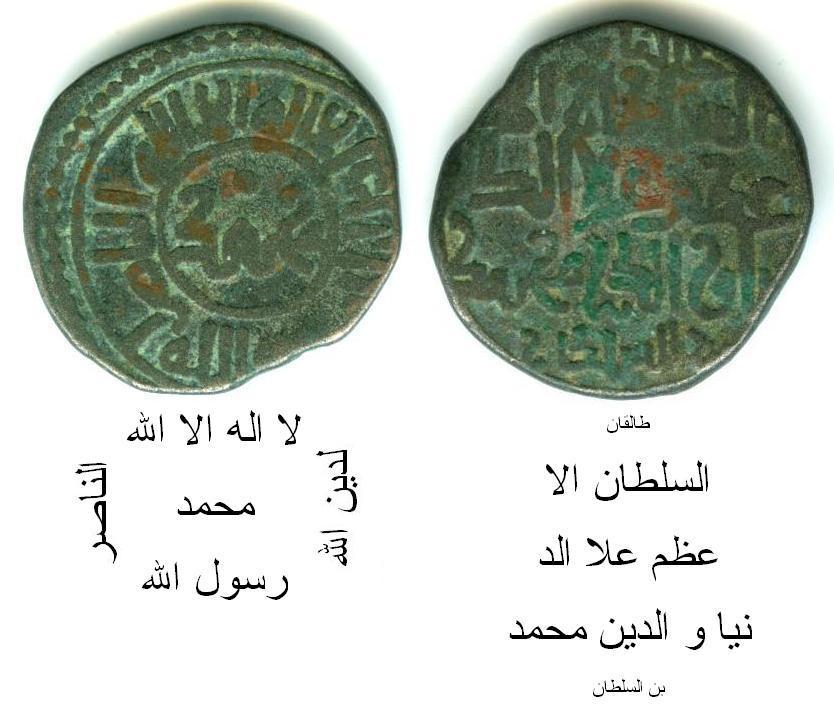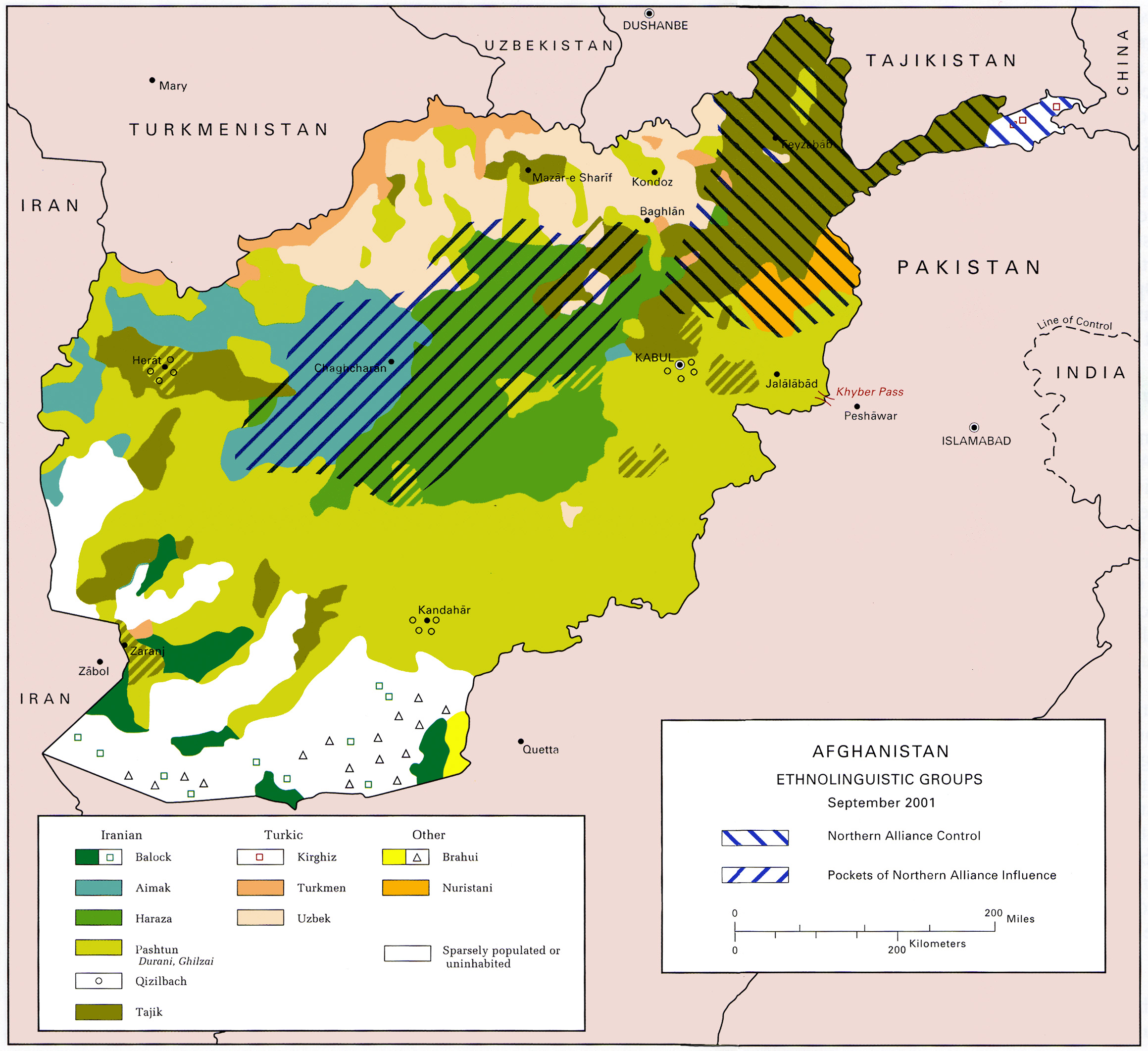|
2014 Baghlan Floods
On 7 June 2014, a flash flood took place in Baghlan, Afghanistan, killing 73-200 people and leaving 200 missing. Background Afghanistan has an annual rainy season in the north, and the building materials of the houses situated there are "flimsy", consisting of mud. Floods The flooding destroyed infrastructure such as bridges and roads, killed 73, and left 200 missing. The flood came after recent flooding in northern Afghanistan. The event killed 65 The flash flood came in the aftermath of powerful winds, heavy rain, and hail. Aftermath Chief of Baghlan police Aminullah Amarkhel gave the location as four villages in Guzargah-e-Nur. Helicopters were unable to land due to the floods, and were unable to deliver needed drinking water, medicine, and food. The Guzargah-e-Nur government requested emergency assistance from the federal government. Two military helicopters belonging to the Afghan army were sent to render aid. The flooding meant that thousands of villagers had to move ... [...More Info...] [...Related Items...] OR: [Wikipedia] [Google] [Baidu] |
Baghlan
Baghlan (Dari: بغلان ''Baġlān'') is a city in northern Afghanistan, in the eponymous province, Baghlan Province. It is located three miles east of the Kunduz River, 35 miles south of Khanabad, and about 500 metres above sea level in the northern Hindu Kush. Baghlan's capital, Pul-e-Khumri, is known to be an economic hub connected to eight other provinces by the Kabul-North highwa History Baghlan grew as an urban centre in the 1930s as a result of a new road from Kabul across the Kunduz River. Baghlan was the capital of the defunct Qataghan Province of northeastern Afghanistan, prior to the controversial 1964 dissolution. Climate With an influence from the local steppe climate, Baghlan features a cold semi-arid climate (''BSk'') under the Köppen climate classification. The average temperature in Baghlan is 15.8 °C, while the annual precipitation averages 284 mm. July is the hottest month of the year with an average temperature of 28.3 °C. The coldest ... [...More Info...] [...Related Items...] OR: [Wikipedia] [Google] [Baidu] |
Afghanistan
Afghanistan, officially the Islamic Emirate of Afghanistan,; prs, امارت اسلامی افغانستان is a landlocked country located at the crossroads of Central Asia and South Asia. Referred to as the Heart of Asia, it is bordered by Pakistan to the Durand Line, east and south, Iran to the Afghanistan–Iran border, west, Turkmenistan to the Afghanistan–Turkmenistan border, northwest, Uzbekistan to the Afghanistan–Uzbekistan border, north, Tajikistan to the Afghanistan–Tajikistan border, northeast, and China to the Afghanistan–China border, northeast and east. Occupying of land, the country is predominantly mountainous with plains Afghan Turkestan, in the north and Sistan Basin, the southwest, which are separated by the Hindu Kush mountain range. , Demographics of Afghanistan, its population is 40.2 million (officially estimated to be 32.9 million), composed mostly of ethnic Pashtuns, Tajiks, Hazaras, and Uzbeks. Kabul is the country's largest city and ser ... [...More Info...] [...Related Items...] OR: [Wikipedia] [Google] [Baidu] |
Flash Flood
A flash flood is a rapid flooding of low-lying areas: washes, rivers, dry lakes and depressions. It may be caused by heavy rain associated with a severe thunderstorm, hurricane, or tropical storm, or by meltwater from ice or snow flowing over ice sheets or snowfields. Flash floods may also occur after the collapse of a natural ice or debris dam, or a human structure such as a man-made dam, as occurred before the Johnstown Flood of 1889. Flash floods are distinguished from regular floods by having a timescale of fewer than six hours between rainfall and the onset of flooding. Flash floods are a significant hazard, causing more fatalities in the U.S. in an average year than lightning, tornadoes, or hurricanes. Flash floods can also deposit large quantities of sediments on floodplains and can be destructive of vegetation cover not adapted to frequent flood conditions. Causes Flash floods most often occur in dry areas that have recently received precipitation, but they may ... [...More Info...] [...Related Items...] OR: [Wikipedia] [Google] [Baidu] |
Puli Khumri
Puli Khumrī (Dari: ), also spelled Pul-i-Khumri or Pol-e Khomri, is a city in northern Afghanistan. Puli Khumri is the capital and largest city of Baghlan Province, whose name comes from the other major town in the province, Baghlan. The city has an estimated population of about 221,274 as of 2015, making it about the 9th-largest city of Afghanistan, and the second-largest city in northeastern Afghanistan after Kunduz. It is a major industrial city. History As of 2017, Taliban insurgents are active in the Dand-e-Shahabuddin part of Puli Khumri. On 5 May 2019, Taliban members stormed the city's police headquarters, killing 13 police. On 1 September 2019, Taliban assaulted the city, but were repelled by the Afghan Army. On 16 January 2021, the district's NDS chief Fazal Wakilzada was killed in a Taliban attack. On 10 August 2021, Puli Khumri became the eighth provincial capital to be captured by the Taliban as part of their nationwide military offensive. Geography Puli Khumri ... [...More Info...] [...Related Items...] OR: [Wikipedia] [Google] [Baidu] |
Taloqan
Taloqan (Persian, also transcribed Taleqan or Taluqan) is the capital of Takhar Province, in northeastern Afghanistan. It is located in the Taluqan District. The population was estimated as 196,400 in 2006. In 2021, the Taliban gained control of the province during the 2021 Taliban offensive. History The old city to the west on the riverside was described by Marco Polo in 1275 CE as: :"a castle called Taikhan, where there is a great corn-market, and the country round is fine and fruitful. The hills that lie to the south of it are large and lofty. They all consist of white salt, extremely hard, with which the people for a distance of thirty days' journey round, come to provide themselves, for it is esteemed the purest that is found in the world. It is so hard, that it can be broken only with great iron hammers. The quantity is so great that all the countries of the earth might be supplied from thence." In 1603, Taloqan ("Talhan") was visited by another European explorer, Be ... [...More Info...] [...Related Items...] OR: [Wikipedia] [Google] [Baidu] |
Ishkamish District
Ishkamish District is a district of Takhar Province, Afghanistan Afghanistan, officially the Islamic Emirate of Afghanistan,; prs, امارت اسلامی افغانستان is a landlocked country located at the crossroads of Central Asia and South Asia. Referred to as the Heart of Asia, it is bordere .... References Districts of Takhar Province {{Takhar-geo-stub ... [...More Info...] [...Related Items...] OR: [Wikipedia] [Google] [Baidu] |
Takhar Province
Takhar (Dari , Farsi/Pashto: ) is one of the thirty-four provinces of Afghanistan, located in the northeast of the country next to Tajikistan. It is surrounded by Badakhshan in the east, Panjshir in the south, and Baghlan and Kunduz in the west. The city of Taloqan serves as its capital. The province contains 17 districts, over 1,000 villages, and approximately 1,113,173 people, which is multi-ethnic and mostly a rural society. The city was attacked during the 2021 Taliban offensive (which coincided with the withdrawal of United States troops). On May 2, 2021, PiramQul Ziayi, the most influential anti-Taliban figure in Takhar, was assassinated in Rustaq district. Following the fall of several districts of Takhar to the Taliban on June 20, 2021, a group of Takhar elders led by Mohibullah Noori, a Resistance leader, announced at a press conference in Kabul that will mobilize people resistance in support of security forces in Takhar. Mohibullah Noori led the group entered t ... [...More Info...] [...Related Items...] OR: [Wikipedia] [Google] [Baidu] |
2014 In Afghanistan
The following lists events from 2014 in Afghanistan. Incumbents * President: Hamid Karzai (until September 29), Ashraf Ghani (starting September 29) * chief executive officer: Abdullah Abdullah (starting September 29) * First Vice President: ** until March 9: Mohammed Fahim ** March 9–31: vacant ** March 31 – September 29: Yunus Qanuni ** starting September 29: Abdul Rashid Dostum * Second Vice President: Karim Khalili (until September 29), Sarwar Danish (starting September 29) * Chief Justice: Abdul Salam Azimi Events January * January 6 – A suicide car bomber detonates at a police checkpoint in Ghazni Province, killing three police officers. * January 8 – A book released by former U.S. Defense Secretary Robert Gates criticizes President Barack Obama for his handling of the War in Afghanistan. * January 9 – The government of Afghanistan announces the release of 72 Taliban fighters from jails, despite American objections that they pose a security threat. * January 11 ... [...More Info...] [...Related Items...] OR: [Wikipedia] [Google] [Baidu] |
2014 Floods In Asia
Fourteen or 14 may refer to: * 14 (number), the natural number following 13 and preceding 15 * one of the years 14 BC, AD 14, 1914, 2014 Music * 14th (band), a British electronic music duo * ''14'' (David Garrett album), 2013 *''14'', an unreleased album by Charli XCX * "14" (song), 2007, from ''Courage'' by Paula Cole Other uses * ''Fourteen'' (film), a 2019 American film directed by Dan Sallitt * ''Fourteen'' (play), a 1919 play by Alice Gerstenberg * ''Fourteen'' (manga), a 1990 manga series by Kazuo Umezu * ''14'' (novel), a 2013 science fiction novel by Peter Clines * ''The 14'', a 1973 British drama film directed by David Hemmings * Fourteen, West Virginia, United States, an unincorporated community * Lot Fourteen, redevelopment site in Adelaide, South Australia, previously occupied by the Royal Adelaide Hospital * "The Fourteen", a nickname for NASA Astronaut Group 3 * Fourteen Words, a phrase used by white supremacists and Nazis See also * 1/4 (other) ... [...More Info...] [...Related Items...] OR: [Wikipedia] [Google] [Baidu] |
Floods In Afghanistan
Floods in Afghanistan start in March and continue until May. Out of 34 provinces in Afghanistan, 21 are vulnerable to floods. The western region and central belt are at the highest risk. However, the southwest and a few northern provinces (Hirat, Ghor, Urozgan, Jozjan, Balkh, and Faryab) can be severely affected by both flooding and drought. Many Afghan provinces are affected by multiple hazards, and lie under the Multi Hazard High Risk Zone. Earthquakes and landslides are of concern in the northern regions. Being mountainous, these areas have poor accessibility due to geographical conditions and harsh weather that further increase the vulnerability of populations living in these areas. Also, the remote central region of Afghanistan experiences recurrent floods and droughts. The southern region is primarily drought-prone. Although no precise records exist in Afghanistan, it is believed drowning, fatal injuries, venomous snakebites, electrocutions, and contamination by toxic m ... [...More Info...] [...Related Items...] OR: [Wikipedia] [Google] [Baidu] |
History Of Afghanistan (1992–present)
History (derived ) is the systematic study and the documentation of the human activity. The time period of event before the invention of writing systems is considered prehistory. "History" is an umbrella term comprising past events as well as the memory, discovery, collection, organization, presentation, and interpretation of these events. Historians seek knowledge of the past using historical sources such as written documents, oral accounts, art and material artifacts, and ecological markers. History is not complete and still has debatable mysteries. History is also an academic discipline which uses narrative to describe, examine, question, and analyze past events, and investigate their patterns of cause and effect. Historians often debate which narrative best explains an event, as well as the significance of different causes and effects. Historians also debate the nature of history as an end in itself, as well as its usefulness to give perspective on the problems of the p ... [...More Info...] [...Related Items...] OR: [Wikipedia] [Google] [Baidu] |



.jpg)